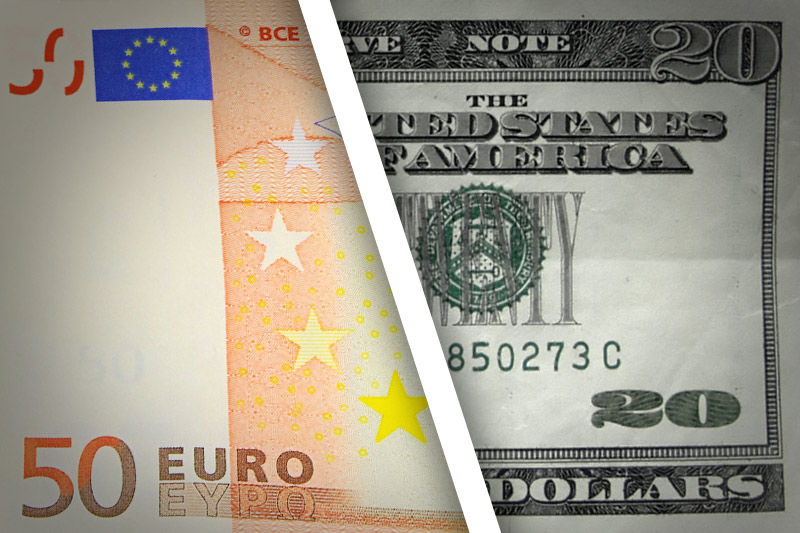Who is Kevin Hassett? Wolfe looks at the Trump ally tipped to become Fed Chair.
Investing.com - The euro remained higher against the U.S. dollar on Wednesday, as risk appetite recovered ahead of the open of U.S. markets, following a two-day shutdown for Hurricane Sandy.
EUR/USD hit 1.3020 during European afternoon trade, the pair’s highest since October 25; the pair subsequently consolidated at 1.3004, rising 0.36%.
The pair was likely to find support at 1.2885, Tuesday’s low and resistance at 1.3074, the high of October 23.
Sentiment on the single currency was boosted after Spanish Prime Minister Mariano Rajoy said his country needs the help of the European Union to meet its budget goals, adding that EU progress on a banking union would allow leeway on making a formal request for aid.
Speaking in the Spanish Parliament, Mr. Rajoy also said that an agreement on direct bank recapitalization is getting closer and that such an agreement would improve market confidence.
Elsewhere, official data showed that the unemployment rate in the euro zone climbed to a record 11.6% in September, from an upwardly revised 11.5% in August, adding to concerns over the deepening impact of the region’s debt crisis.
Earlier Wednesday, official data showed that German retail sales rose 1.5% in September, the fastest pace since June 2011, easily beating expectations for a 0.3% increase.
The euro was slightly higher against the pound, with EUR/GBP easing up 0.11% to 0.8070 and gained ground against the yen, with EUR/JPY rising 0.59% to 103.79.
Later Wednesday, the U.S. was to produce official data on manufacturing activity in Chicago, as well as a government report on crude oil inventories.
Meanwhile, euro zone finance ministers were to hold a conference call to discuss Greece’s progress on meeting austerity targets, but no decision on when the country will receive the next tranche of its bailout was expected.
EUR/USD hit 1.3020 during European afternoon trade, the pair’s highest since October 25; the pair subsequently consolidated at 1.3004, rising 0.36%.
The pair was likely to find support at 1.2885, Tuesday’s low and resistance at 1.3074, the high of October 23.
Sentiment on the single currency was boosted after Spanish Prime Minister Mariano Rajoy said his country needs the help of the European Union to meet its budget goals, adding that EU progress on a banking union would allow leeway on making a formal request for aid.
Speaking in the Spanish Parliament, Mr. Rajoy also said that an agreement on direct bank recapitalization is getting closer and that such an agreement would improve market confidence.
Elsewhere, official data showed that the unemployment rate in the euro zone climbed to a record 11.6% in September, from an upwardly revised 11.5% in August, adding to concerns over the deepening impact of the region’s debt crisis.
Earlier Wednesday, official data showed that German retail sales rose 1.5% in September, the fastest pace since June 2011, easily beating expectations for a 0.3% increase.
The euro was slightly higher against the pound, with EUR/GBP easing up 0.11% to 0.8070 and gained ground against the yen, with EUR/JPY rising 0.59% to 103.79.
Later Wednesday, the U.S. was to produce official data on manufacturing activity in Chicago, as well as a government report on crude oil inventories.
Meanwhile, euro zone finance ministers were to hold a conference call to discuss Greece’s progress on meeting austerity targets, but no decision on when the country will receive the next tranche of its bailout was expected.
